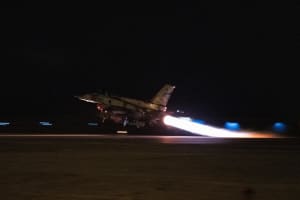IDF kills senior Hezbollah commander in Beirut airstrike after 170 rockets rain on northern Israel
'Our actions speak for themselves,' says Netanyahu in rare Sabbath statement

This is a developing story.
The ongoing exchange of heavy blows between Hezbollah and the Israeli military reached a new escalation stage on Friday, as the IDF confirmed it killed Ibrahim Aqil, among the top commanders of the terror group, after 170 rockets rained down on northern Israel throughout the day.
The Lebanese terror group Hezbollah launched some 170 rockets in three barrages after Israeli airstrikes struck over 100 of its rocket launchers over the preceding 12 hours.
In the evening, the IDF announced it had killed Ibrahim Aqil, among the terror group's highest commanders, in an airstrike in Beirut's Dahiyeh district.
Aqil was "the head of Hezbollah's Operations Directorate, the acting commander of the Radwan Unit and commander of the 'Plan for the Conquest of the Galilee'," the army said.
The Radwan Unit has boasted for years of its plans to conquer parts of the the Israeli Galilee in a future all-out conflict. Aqil recently took over command of the Radwan Unit after its previous commander, Wissam Tawil, was killed by the Israeli Air Force.
"Along with Aqil, the top operatives and command staff of the Radwan Unit were eliminated," the IDF stated. According to Axios, around 20 of the elite unit's most senior commanders died in the strike.
"The Hezbollah commanders we killed today planned the 'October 7' on the northern border for years. We reached them and we will reach anyone who threatens the security of the citizens of the State of Israel," IDF Chief of Staff Lt. Gen. Herzi Halevi said.
In the first barrage of the day, coming shortly after 1 p.m., Hezbollah targeted the area of Safed, Mount Meron and the northern Golan Heights. Rocket impacts were reported in a playground near Safed and a barn in Kibbutz Ortal on the Golan Heights.
In the second barrage, around 70 rockets targeted the same area, with reports of an impact near Ein Zeitim.
A third wave of some 20 rockets targeted the area of Mount Meron, before a fourth wave of another 20 rockets again threatened Safed and the Meron area.
Overall, around 170 rockets were fired at northern Israel in the span of just one hour. The IDF said most of the rockets were either intercepted or landed in open areas, where they sparked numerous fires.
No casualties were reported at the time of publication.
Some hours after the Jewish Sabbath began, Prime Minister Benjamin Netanyahu released a highly unusual statement on Friday evening.
"Our goals are clear and our actions speak for themselves," he said, leading Israeli journalists to speculate that the day of fighting hadn't ended yet.
Israeli media reported that the prime minister invited senior ministers and security chiefs for a operational assessment around 10 p.m.
At the time of publication, Hezbollah hasn't yet commented on the strike on Aqil and the Radwan Unit's high command.
"Nasrallah is without the two most important people who used to sit by his side in any situation assessment," senior security officials told Army Radio after the strike on Aqil.
"When we talk about 'a new phase in the war' - this is exactly what we mean. Beirut used to be the red line - now there are no more red lines."

The All Israel News Staff is a team of journalists in Israel.
You might also like to read this:














